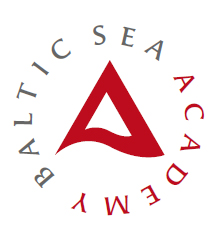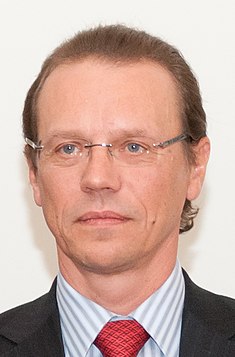
The Hanseatic League was a commercial and defensive confederation of merchant guilds and market towns in Northwestern and Central Europe. Growing from a few North German towns in the late 1100s, the league came to dominate Baltic maritime trade for three centuries along the coasts of Northern Europe. Hansa territories stretched from the Baltic to the North Sea and inland during the Late Middle Ages, and diminished slowly after 1450.
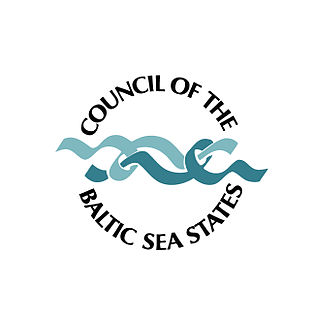
The Council of the Baltic Sea States (CBSS) is a regional intergovernmental organisation working on three priority areas: Regional Identity, Safe & Secure Region and Sustainable & Prosperous Region. These three priority areas aim to address the themes of environment, economic development, entrepreneurship, education, culture, civil security, children's rights and trafficking in human beings.
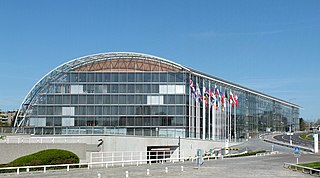
The European Investment Bank (EIB) is the European Union's nonprofit long-term lending institution established in 1958 under the Treaty of Rome. As a "policy-driven bank" whose shareholders are the member states of the EU, the EIB uses its financing operations to bring about European integration and social cohesion. It should not be confused with the European Central Bank, which is based in Frankfurt (Germany) or with the European Bank for Reconstruction and Development (EBRD) which is based in London.

The Baltic states, also known as the Baltic countries, Baltic republics, Baltic nations or simply the Baltics, is a geopolitical term, typically used to group the three sovereign states in Northern Europe on the eastern coast of the Baltic Sea: Estonia, Latvia, and Lithuania. The term is not used in the context of cultural areas, national identity, or language, because while the majority of people in Latvia and Lithuania are Baltic people, the majority in Estonia are Finnic. The three countries do not form an official union, but engage in intergovernmental and parliamentary cooperation. The most important areas of cooperation between the three countries are foreign and security policy, defence, energy and transportation.

The terms Baltic region, Baltic Rim countries, and the Baltic Sea countries refer to slightly different combinations of countries in the general area surrounding the Baltic Sea in Northern Europe.

Paul Rübig is an Austrian politician and Member of the European Parliament (MEP) from Austria. He is a member of the Austrian People's Party, part of the European People's Party.
Interreg is a series of programmes to stimulate cooperation between regions in the European Union, funded by the European Regional Development Fund. The first Interreg started in 1989. Interreg IV covered the period 2007–2013. Interreg V (2014-2020) covers all 28 EU Member States, 3 participating EFTA countries, 6 accession countries and 18 neighbouring countries. It has a budget of EUR 10.1 billion, which represents 2.8% of the total of the European Cohesion Policy budget. Since the non EU countries don't pay EU membership fee, they contribute directly to Interreg, not through ERDF.
The Baltic Sea Region Programme 2007–2013 is a support programme part-financed by the European Union and Norway. It is one of the mainstream Structural Funds programmes under the European Community’s territorial co-operation objective. The Programme will support transnational projects working together for balanced and sustainable development of the European territory.

Established in 1954, the CIFE -Centre international de formation européenne is a private institute of higher education and research whose activities include European studies, master's education, training courses as well as conferences, seminars and publications. The activities of the CIFE encompass educational and research activities concerning European integration, federalism, regionalism and changes within the structures of contemporary society in accordance with a federalist prospective. The Centre international de formation européenne has its head office in Nice and a branch office in Berlin. CIFE receives the support of the European Union and other international organisations, of numerous national governments as well as regional and local authorities, foundations, and private contributors. It is one of the six institutions which benefit from the Jean Monnet Programme "Support for specified institutions pursuing an aim of European interest" of the European Commission.
The Baltic Development Forum is an independent think-tank and non-profit high-level and agenda-setting networking organisation with strategic partners and sponsors from large companies, major cities, institutional investors, business associations and academia in the Baltic Sea Region. The network involves more than 8,000 decision-makers from all over the region and beyond.
Europe 2020 is a 10-year strategy proposed by the European Commission on 3 March 2010 for advancement of the economy of the European Union. It aims at "smart, sustainable, inclusive growth" with greater coordination of national and European policy. It follows the Lisbon Strategy for the period 2000–2010.
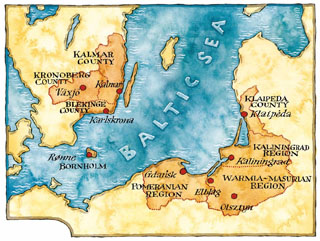
Euroregion Baltic(ERB) is an institutionalised form of cross-border cooperation in the south-east of the Baltic Sea Region, consisting of eight regions of Denmark, Lithuania, Poland, Russia, and Sweden.
Baltic Compass is a transnational project which aims to reinforce connection between landuse, environment and agriculture, leading to healthier ecosystems and a more competitive Baltic Sea region. The name Baltic Compass comes from the letters from the whole name of the project: Comprehensive Policy Actions and Investments in Sustainable Solutions in Agriculture in the Baltic Sea Region.
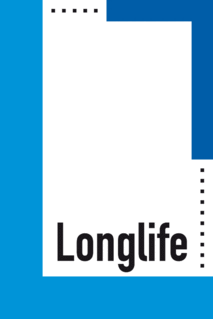
Longlife is a transnational project in the Baltic Region. It is funded through the EU programme Baltic Sea Region 2007-2013. Longlife contributes to the EU Strategy 2020 framework to reduce energy consumption.

Tetiana Starodub, Ph.D., Senior Researcher, is a Ukrainian scientist, Associate Professor of International Relations Department, Kyiv Academy for the Humanities, Associate professor of political analytics and forecasting Department of National Academy of Public Administration under the Office of the President of Ukraine. Author of notable scientific articles dedicated to regional security of the state and the shaping of new regionalism. Participant of more than 40 international scientific activities in Ukraine and abroad.

Department of Geodesy Gdansk University of Technology – continues the tradition of the Department of Surveying and Cartography, established at Gdansk University of Technology in 1945.

The Southern Baltic Sea Parliamentary Forum was founded in 2004 as a forum for the regional parliaments of Schleswig-Holstein, Hamburg, Mecklenburg-Western Pomerania (Mecklenburg-Vorpommern), West Pomerania (Westpommern), Pomerania (Pommern), Warmia-Masuria (Ermland-Masuren) and the administrative district of Kaliningrad. The regional parliament of the southern Swedish province Schonen is an associated Member.
Science and technology in Kazakhstan outlines government policies to develop science, technology and innovation in Kazakhstan.
